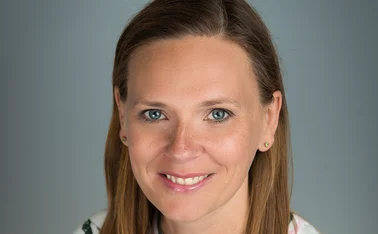
The whole picture
Despite their importance to many insurers, brokers are often forgotten when it comes to the servicing of claims. Ana Paula Nacif reports on the benefits providers may achieve by addressing this issue seriously.
Claims services should be at the heart of any insurance business, but while some insurers are spending time and money to create a better experience for brokers, others are still lagging behind.
According to Imran Ahmed, head of European claims practice at Ernst & Young, if insurers get their claims services right, it can be make a significant difference to brokers and their customers. "However, some do better than others," he says, "and insurance companies need to think about their proposition as a whole — not only claims."
Insurance companies with a consistent and more personalised approach to brokers' claims seem to be reaping the benefits. Last month, Travelers relaunched its Top Brass Club for regional independent brokers with a dedicated claims manager.
Andy Clements, assistant general manager at Travelers, says that apart from regional brokers, the insurer also has a claims proposition for other groups, such as national brokers and consolidators. "We want to make sure that what we offer is relevant," explains Mr Clements. "And large brokers have different needs to regional independent ones, for example."
He is keen to emphasise that Travelers offers a personalised claims service to all brokers. "If a claim is allocated to a handler, the same person will be looking after that claim, regardless of what type of broker we are dealing with."
Brokers appreciate having the same person dealing with their claims, says Mike Rogers, head of product and business development at The Broker Network. "We have seen insurers using claims managers before and it works very well. When you are dealing with large corporate risks, for example, you know that there will be a certain volume of claims and that's when claims managers come in to their own."
Another added benefit of this approach is customer loyalty. "We get selected by customers who want first-class claims services," Mr Clements explains. "Our perspective is that claims should be part of a professional insurance service. Therefore, our claims team works closely with our sales team at the point of sale. They also go and see the customer to discuss how they can work together to handle future claims."
Dedicated professionals
This approach has been praised by regional brokers that say having someone personally responsible for their claims speeds up settlement, which in turn improves their services to customers.
Paul Anscombe, managing director of James Hallam, says: "Having access to a dedicated person taking interest in your business is fantastic. The most frustrating thing for a broker is to be passed around from person to person. Insurers have dedicated people on the sales side of the business, so why not on claims?"
He believes that insurers that do not pay as much attention to their claims services as they should are missing a trick, adding that more resources should be put into claims. "Typically, the average salary of claims staff falls behind underwriting and sales," he explains. "This is not going to attract the best people to a career in claims. Insurance companies should think about what is important for their policyholders and their brokers. Having a great claims service will encourage us to recommend specific insurers."
Lee Cohen, managing director of Hamilton Leigh, agrees that by giving brokers access to a dedicated and experienced claims manager, Travelers has made brokers' lives easier.
"We are able to get through to the same person every time," he emphasises. "The claims manager is also happy to attend meetings with clients, and they seem to have a better understanding of the risks and claims, which leads to a prompt decision, speeding up the whole process."
However, Mr Cohen points out that "most insurers don't have Travelers' proactive attitude". He explains: "They still operate in a call centre environment, which is extremely impersonal, and we rarely have the same claims handler."
The issue brokers have with the call centre approach is that when the claims process does not run smoothly, they are usually sent from pillar to post, trying to get a better outcome for their clients.
David Foster, director of Lark Insurance Broking Group, says sometimes brokers end up talking to underwriters, who then contact the claims team on their behalf.
"Having someone senior involved from the beginning is a very good idea," he says. "We do all our claims in-house and we have a claims person responsible for the whole process. It should be the same when we are dealing with insurers."
He adds that the claims part of the business can sometime be neglected by some insurers. "There is a lot of competition between insurers but, at the same time, there is little evidence to prove that they give the best claims services to back up their offerings. We have some fantastic insurers when it comes to settling claims, such as Hiscox and Chubb, but others don't deliver the same level of service."
Mr Ahmed agrees that there could be a tendency for insurers to focus on underwriting, which is linked to sales. But he warns that: "Claims has the biggest influence on whether a policy is renewed or not. Those ignoring this are being short-sighted about their business. If insurers get their claims right, it can be a significant differentiator."
Point of contact
Some insurers are working to improve their claims services to brokers by adopting a similar model to Travelers', according to Mr Ahmed. Allianz, for example, set up a team of claims business consultants in 2007. Amanda Hancock, customer operations manager for the insurer's claims division, explains that this was set up because brokers wanted a central point of contact with someone just a phone call away, should any queries or issues arise.
"Brokers told us that access to someone with the ability and power to get things done, with a good experience of the business, and, in particular, their business, together with an understanding of their clients' needs was essential," she explains.
The power to decide on complex, and sometimes difficult, issues is key, according to Mr Rogers. "When brokers don't get through to a decision-maker, someone who is empowered to get things moving, insurers let themselves down. If you have a claims manager, the problem can be rectified before it becomes an issue."
And it is not only insurers that are trying to give brokers a better deal. Richard Turner, client services director at Crawford, says there is an overall trend in the market to develop better services for brokers. Crawford developed its Broker Care Service 18 months ago, which, according to Mr Turner, "is about establishing better relationships with regional brokers around the country".
"We surveyed brokers to see what was really important to them and claims came out top, so we tailored our service to respond to that feedback," he explains. "Broker Care managers introduce themselves to brokers and find out how they can help. Brokers get involved in the claims operations from the outset, so there are no surprises."
Building relationships
Mr Turner believes that investing time upfront to build relationships pays dividends. "When a claim arises, brokers are talking to people they have met before," he points out. "Forging this relationship means that brokers know they can trust us. We talk the same language and we can always respond before a claim becomes an issue for a client. We don't see brokers as having an interfering role, we work collaboratively."
Since it introduced the service, the company has seen referrals from satisfied customers. "Brokers see the value in the services," says Mr Turner, "and, since we introduced it, they have recommended us to other companies on the back of their experience."
The fact that brokers view claims as vital to their business is not surprising, given that it is only when there is a claim that their customers can judge both their services and the insurer they recommended.
Trudy Brown, personal lines manager at Higos, points out: "Claims are the life, blood and shop window of the business. Clients are guided by our professional advice and they will only have the proof that the advice was correct when there is a claim. If the service is not good enough, it can seriously damage our relationship with clients."
On the other hand, Ms Brown is keen to emphasise that insurers doing a good job should be given more credit. "Like everything in life, people hear about the claims that go wrong, but there are hundreds of thousands that are handled effectively."
She believes by having a close relationship with insurers' claims departments, brokers can provide invaluable feedback to insurance companies on areas that need to be improved, as well as those that are going well. "It works both ways. Brokers can feedback on claims that have been handled particularly well and having a claims manager liaising with brokers on a regular basis can only add value."
Reciprocal service
As brokers feel they are able to offer their clients a personalised approach, they expect to receive the same level of service from the insurance companies they work with. "Insurers should treat us in the same way," says Mr Cohen. "That would be extremely valuable."
He believes the reason why some insurers fail to create a more personalised claims service for brokers is based partly on costs, but also on the fact that some companies have adopted a 'one-size-fits-all approach'. "They have underestimated the commercial environment requirement for more personalised services and are ignoring it because of the financial constraint. The call centre environment is not suitable anymore."
Such a mentality can not only jeopardise the client-broker relationship, but, in the current climate, could also put many businesses at risk, especially small and medium enterprises, according to John Sims, chief executive officer of loss recovery insurance specialists Lorega. "Our adjusters waste a ridiculous amount of time on hold waiting for people to make a decision. I take my hat off to Travelers' spirit of treating customers and brokers fairly."
Mr Sims explains that SME clients, in particular, need help quickly. "If brokers need to speak to five different people on 10 different occasions to get a settlement, the SME affected is already going bust. At the moment, 111 SMEs are going out of business every day and insurers are not doing their reputation any good by offering poor claims services. The client may end up getting paid, but they may be out of business by then."
It seems that giving brokers a good claims experience makes business sense, in terms of retention as well as new business. But will all insurers adopt a personalised approach and will all brokers benefit?
"Most insurers segment their brokers in some way," says Mr Ahmed. "Brokers that are more important and valuable to insurers get differentiated services and perhaps a dedicated claims individual. It's like banking — high net worth individuals receive a more bespoke service than the average person."
However, as Mr Ahmed concludes, this should not be an excuse for insurers not to provide the best service for all brokers. "Claims is the showcase for the insurance company and it is important to get it right, so it works for both parties, helping to strengthen the broker- insurer relationship."
Only users who have a paid subscription or are part of a corporate subscription are able to print or copy content.
To access these options, along with all other subscription benefits, please contact info@postonline.co.uk or view our subscription options here: http://subscriptions.postonline.co.uk/subscribe
You are currently unable to print this content. Please contact info@postonline.co.uk to find out more.
You are currently unable to copy this content. Please contact info@postonline.co.uk to find out more.
Copyright Infopro Digital Limited. All rights reserved.
As outlined in our terms and conditions, https://www.infopro-digital.com/terms-and-conditions/subscriptions/ (point 2.4), printing is limited to a single copy.
If you would like to purchase additional rights please email info@postonline.co.uk
Copyright Infopro Digital Limited. All rights reserved.
You may share this content using our article tools. As outlined in our terms and conditions, https://www.infopro-digital.com/terms-and-conditions/subscriptions/ (clause 2.4), an Authorised User may only make one copy of the materials for their own personal use. You must also comply with the restrictions in clause 2.5.
If you would like to purchase additional rights please email info@postonline.co.uk








